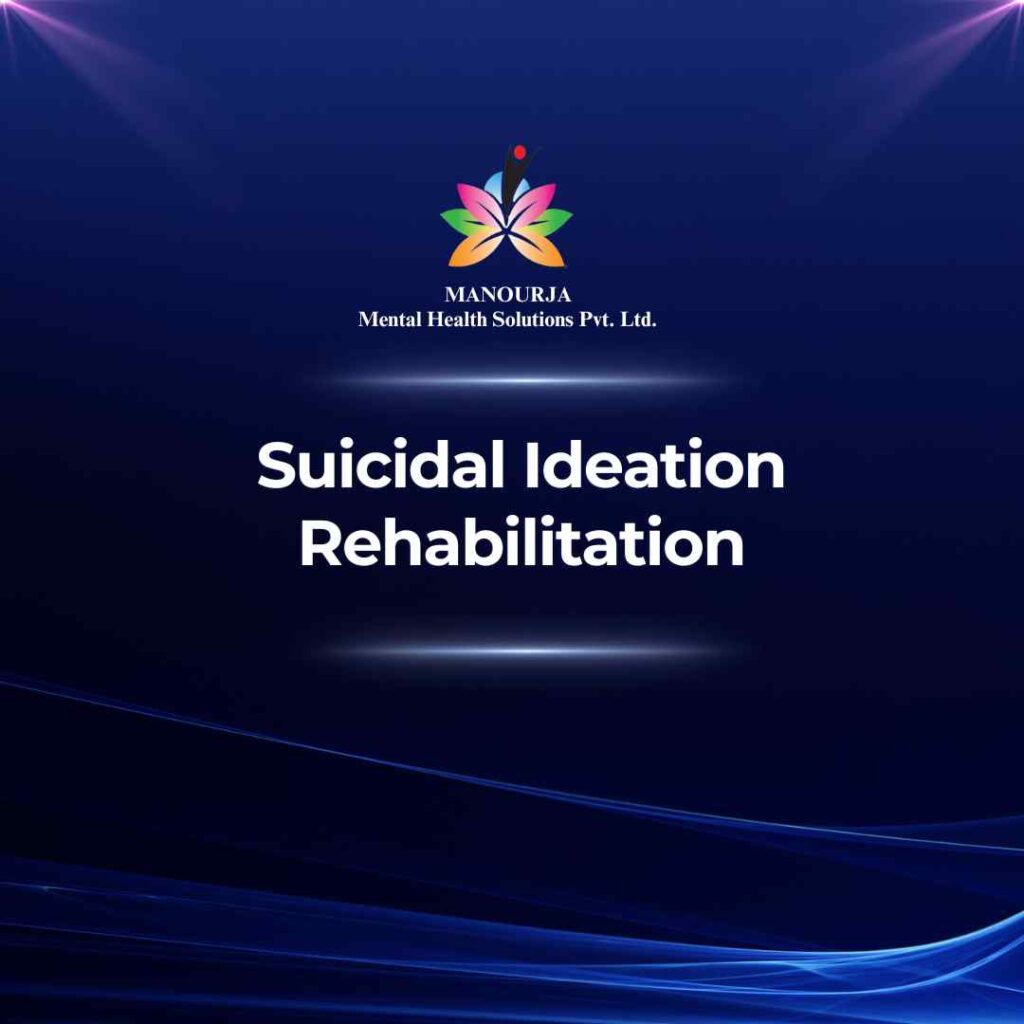Suicidal Ideation Rehabilitation

Suicidal ideation involves thoughts about or an unusual preoccupation with suicide. Whether these thoughts are detailed plans or fleeting considerations, they signal the need for immediate assessment and intervention. Recognizing the signs and symptoms is crucial to determining the need for outpatient (OPD) or inpatient (IPD) psychosocial rehabilitation.
Signs and Symptoms of Suicidal Ideation
Individuals and family members should be vigilant for the following indicators:
- Expressing a Desire to Die: Clear statements about wanting to die.
- Preoccupation with Death: Frequent talk or obsession about death or dying.
- Feeling Hopeless: Persistent feelings of hopelessness about the future.
- Feeling Trapped: Expressions of being trapped or in unbearable pain.
- Withdrawal: Withdrawing from friends, family, and society.
- Mood Swings: Severe, unpredictable emotional changes.
- Self-destructive Behavior: Increased alcohol or drug use, reckless driving, or engaging in dangerous activities.
- Putting Affairs in Order: Making wills, giving away possessions, or making other preparations for death.
- Saying Goodbye: Unusual/unexpected visits or calls to family and friends; saying goodbye to people as if they won’t be seen again.
Indicators for OPD vs. IPD Psychosocial Rehabilitation
Outpatient (OPD) Psychosocial Rehabilitation
- Suitable for individuals who have thoughts of suicide but no plan or immediate intent to harm themselves.
- Effective when the individual has a supportive living environment and access to a strong support network.
- Appropriate for those who are compliant with treatment protocols and are actively seeking help.
Inpatient (IPD) Psychosocial Rehabilitation
- Necessary for individuals who have a plan and intent to commit suicide or who have made recent suicide attempts.
- Required for those who do not have a support system in place or whose living situation may exacerbate their risk.
- Recommended when the individual poses a clear and immediate danger to themselves or others.
Factors Influencing the Decision
- Severity and Immediacy of Risk: The level of danger the individual poses to themselves.
- Support System: Availability and reliability of family or community support structures.
- Previous Suicidal Behavior: History of suicide attempts or self-harm.
- Co-existing Mental Health Issues: Presence of conditions like depression, substance abuse, or anxiety disorders.
Role of Psycho-social Rehabilitation in Treating Suicidal Ideation
Psycho-social rehabilitation aims to reduce immediate risks and improve the individual’s coping mechanisms through:
- Crisis Intervention: Immediate intervention to address and stabilize acute suicidal crises.
- Cognitive Behavioral Therapy (CBT): Helps to change negative thought patterns that contribute to suicidal thinking.
- Safety Planning: Collaborative planning to identify triggers and develop strategies to cope with suicidal thoughts.
- Skill Building: Enhancing problem-solving skills, stress management, and emotional regulation.
Techniques and Approaches Used at MANOURJA
The rehabilitation process at MANOURJA may include:
- Dialectical Behavior Therapy (DBT): Specifically effective for those with recurrent suicidal behavior; focuses on building life skills and coping mechanisms.
- Interpersonal Therapy (IPT): Addresses interpersonal issues that may trigger suicidal thoughts.
- Group Therapy: Provides peer support and a sense of community, reducing isolation.
- Medication Management: Use of antidepressants or other medications to treat underlying psychiatric conditions contributing to suicidal ideation.
Steps in the Rehabilitation Process at MANOURJA
- Initial Assessment: Comprehensive evaluation to assess risk factors and mental health status.
- Personalized Treatment Planning: Developing a tailored treatment plan that addresses specific needs.
- Implementation of Interventions: Engaging the patient in individual and group therapy sessions, medication management, and continuous monitoring.
- Regular Monitoring and Adjustment: Continual assessment of the patient’s mental state and progress; adjusting treatment plans as needed.
- Aftercare and Relapse Prevention: Planning for follow-up care to support recovery and prevent recurrence.
Suicidal ideation can be a daunting challenge, but with effective psychosocial rehabilitation, individuals can recover and return to a fulfilling life. The comprehensive care provided at MANOURJA aims to equip individuals with the tools necessary to manage their feelings and build a hopeful future.
“Remember, every sunrise is a new chance to rewrite your story; you’re not alone on this journey.”
